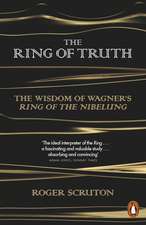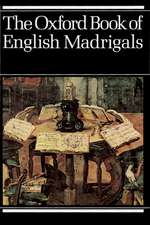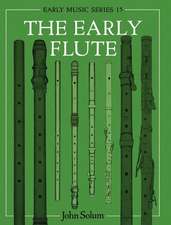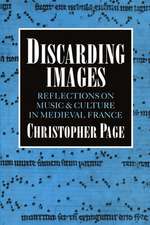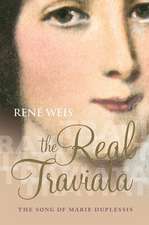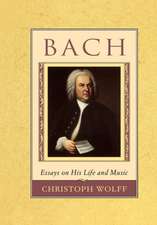Music, Patronage and Printing in Late Renaissance Florence: Variorum Collected Studies
Autor Tim Carteren Limba Engleză Hardback – 28 mai 2000
Din seria Variorum Collected Studies
- 9%
 Preț: 938.85 lei
Preț: 938.85 lei -
 Preț: 311.41 lei
Preț: 311.41 lei -
 Preț: 351.48 lei
Preț: 351.48 lei -
 Preț: 313.38 lei
Preț: 313.38 lei -
 Preț: 386.77 lei
Preț: 386.77 lei -
 Preț: 325.68 lei
Preț: 325.68 lei -
 Preț: 396.00 lei
Preț: 396.00 lei -
 Preț: 312.75 lei
Preț: 312.75 lei - 9%
 Preț: 1041.23 lei
Preț: 1041.23 lei -
 Preț: 258.66 lei
Preț: 258.66 lei -
 Preț: 299.55 lei
Preț: 299.55 lei - 9%
 Preț: 938.08 lei
Preț: 938.08 lei -
 Preț: 343.33 lei
Preț: 343.33 lei -
 Preț: 311.18 lei
Preț: 311.18 lei - 9%
 Preț: 937.13 lei
Preț: 937.13 lei -
 Preț: 351.41 lei
Preț: 351.41 lei -
 Preț: 320.00 lei
Preț: 320.00 lei - 34%
 Preț: 764.20 lei
Preț: 764.20 lei - 23%
 Preț: 315.48 lei
Preț: 315.48 lei - 36%
 Preț: 740.06 lei
Preț: 740.06 lei - 34%
 Preț: 764.20 lei
Preț: 764.20 lei - 34%
 Preț: 680.73 lei
Preț: 680.73 lei - 26%
 Preț: 247.40 lei
Preț: 247.40 lei - 34%
 Preț: 485.78 lei
Preț: 485.78 lei - 38%
 Preț: 766.91 lei
Preț: 766.91 lei - 34%
 Preț: 767.07 lei
Preț: 767.07 lei - 34%
 Preț: 764.20 lei
Preț: 764.20 lei - 34%
 Preț: 769.51 lei
Preț: 769.51 lei - 38%
 Preț: 769.85 lei
Preț: 769.85 lei - 34%
 Preț: 826.68 lei
Preț: 826.68 lei - 25%
 Preț: 225.28 lei
Preț: 225.28 lei - 25%
 Preț: 225.54 lei
Preț: 225.54 lei - 34%
 Preț: 736.38 lei
Preț: 736.38 lei - 25%
 Preț: 226.52 lei
Preț: 226.52 lei - 33%
 Preț: 491.66 lei
Preț: 491.66 lei - 34%
 Preț: 485.78 lei
Preț: 485.78 lei - 34%
 Preț: 485.78 lei
Preț: 485.78 lei - 36%
 Preț: 739.17 lei
Preț: 739.17 lei - 38%
 Preț: 766.34 lei
Preț: 766.34 lei - 31%
 Preț: 473.94 lei
Preț: 473.94 lei - 18%
 Preț: 843.61 lei
Preț: 843.61 lei - 38%
 Preț: 774.91 lei
Preț: 774.91 lei - 38%
 Preț: 769.92 lei
Preț: 769.92 lei - 34%
 Preț: 764.20 lei
Preț: 764.20 lei - 51%
 Preț: 485.78 lei
Preț: 485.78 lei - 36%
 Preț: 488.49 lei
Preț: 488.49 lei - 34%
 Preț: 769.10 lei
Preț: 769.10 lei - 38%
 Preț: 766.99 lei
Preț: 766.99 lei - 18%
 Preț: 1019.01 lei
Preț: 1019.01 lei
Preț: 738.43 lei
Preț vechi: 1113.40 lei
-34% Nou
Puncte Express: 1108
Preț estimativ în valută:
141.29€ • 147.53$ • 116.94£
141.29€ • 147.53$ • 116.94£
Carte tipărită la comandă
Livrare economică 04-18 aprilie
Preluare comenzi: 021 569.72.76
Specificații
ISBN-13: 9780860788171
ISBN-10: 0860788172
Pagini: 298
Dimensiuni: 152 x 229 mm
Greutate: 0.57 kg
Ediția:1
Editura: Taylor & Francis
Colecția Routledge
Seria Variorum Collected Studies
Locul publicării:Oxford, United Kingdom
ISBN-10: 0860788172
Pagini: 298
Dimensiuni: 152 x 229 mm
Greutate: 0.57 kg
Ediția:1
Editura: Taylor & Francis
Colecția Routledge
Seria Variorum Collected Studies
Locul publicării:Oxford, United Kingdom
Cuprins
Contents: Introduction; Jacopo Peri (1561-1633): aspects of his life and works; Jacopo Peri; Jacopo Peri's Euridice (1600): a contextual study; A Florentine wedding of 1608; Serate musicali in early seventeenth-century Florence: Girolamo Montesardo's L'allegre notti di Fiorenza (1608); Giulio Caccini (1551-1618): New facts, new music; Music and patronage in late sixteenth-century Florence: the case of Jacopo Corsi (1561-1602); Non occorre nominare tanti musici: private patronage and public ceremony in late sixteenth-century Florence; Another promoter of the 1582 'Rassettatura' of the Decameron; The music trade in late sixteenth-century Florence; Music-printing in late sixteenth- and early seventeenth-century Florence: Giorgio Marescotti and Zanobi Pignoni; Music-selling in late sixteenth-century Florence: the bookshop of Piero di Giuliano Morosi; Music at the Duomo in Pistoia: Three new documents from the Cinquecento; Index.
Recenzii
'...this richly detailed study brings in many fascinating strands...' - The Birmingham Post
'... rich collection of essays.' Journal of Seventeenth-Century Music '... these excellent case studies by one of the leading scholars of early modern Italian music not only fit together well to form a well-considered, unified volume, but also provide the reader with a privileged entry into the cultural world of late-Renaissance Florence.' - Sixteenth Century Journal
'We welcome these volumes as handy repositories of thinking by experts in a particular area, especially when they make more readily available studies that appeared in Festschriften and non-musicological journals. Moreover, by bringing such articles together, the publisher allows us to see an author's separate works as an interrelated whole... Tim Carter has produced here a distinctive body of work that effectively combines his research on seventeenth-century opera and Florence with his studies on music printing and urban musicology. It is an exemplary combination that illustrates the importance of combining research on genres, performance, cultural context, and modes of transmission in order to construct that "web of culture" for which so many of us strive... thought-provoking and informative.' - Renaissance Quarterly
'... rich collection of essays.' Journal of Seventeenth-Century Music '... these excellent case studies by one of the leading scholars of early modern Italian music not only fit together well to form a well-considered, unified volume, but also provide the reader with a privileged entry into the cultural world of late-Renaissance Florence.' - Sixteenth Century Journal
'We welcome these volumes as handy repositories of thinking by experts in a particular area, especially when they make more readily available studies that appeared in Festschriften and non-musicological journals. Moreover, by bringing such articles together, the publisher allows us to see an author's separate works as an interrelated whole... Tim Carter has produced here a distinctive body of work that effectively combines his research on seventeenth-century opera and Florence with his studies on music printing and urban musicology. It is an exemplary combination that illustrates the importance of combining research on genres, performance, cultural context, and modes of transmission in order to construct that "web of culture" for which so many of us strive... thought-provoking and informative.' - Renaissance Quarterly
Descriere
This collection of reprinted essays starts from the author's doctoral research on Jacopo Peri and the rise of opera and solo song in late sixteenth- and early seventeenth-century Florence. It extends to broader issues concerning music and patronage in the city as they affected individual composers, patrons and institutions, and thence to the commerce of music printing and the book trade. It concludes with an attempt to suggest a broader view of these various issues as they impact upon musical life in the 'provinces' in Tuscany. There is a great deal of new documentary and other information here, but the aim is also to expand methodological horizons so as to prompt new ways of thinking about music in its contexts.

